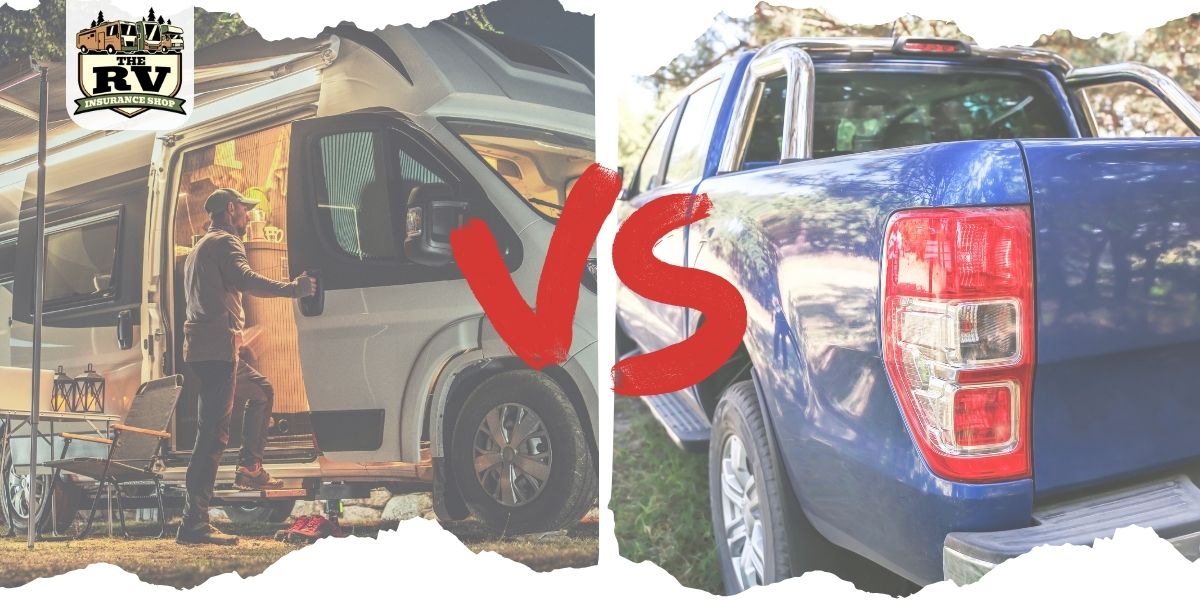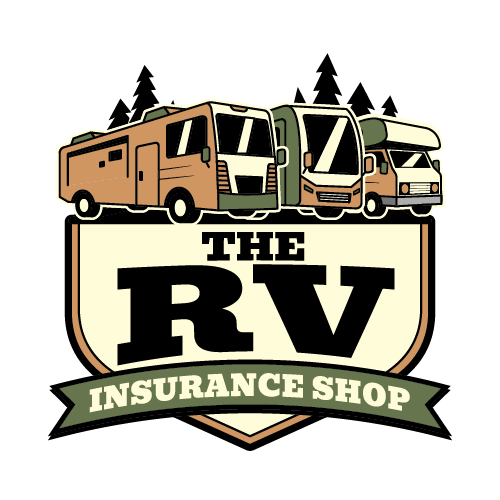RV Insurance vs. Auto Insurance: What’s the Difference?

When it comes to insuring your vehicle, the type of insurance you need depends on the vehicle itself. RVs, with their unique blend of vehicle and home, require specialized insurance that differs significantly from standard auto insurance. Understanding these differences is crucial for ensuring that you have the appropriate coverage for your RV. In this blog post, we’ll explore the key differences between RV insurance and auto insurance, and why having the right type of coverage matters.
The Nature of RVs vs. Autos
The fundamental difference between RV insurance and auto insurance lies in the nature of the vehicles themselves. RVs, or recreational vehicles, serve as both a mode of transportation and a living space, while standard autos are purely vehicles designed for transportation.
- RVs as Homes: Many RVs are equipped with living quarters, including kitchens, bathrooms, and sleeping areas. This dual purpose as both a vehicle and a home creates a need for more comprehensive coverage than what’s typically provided by auto insurance.
- Size and Value: RVs are generally larger and more expensive than most automobiles. The increased size and value of RVs mean that accidents involving RVs can result in more significant damage and higher repair costs, necessitating specialized insurance coverage.
- Usage Patterns: RVs are often used for extended trips, vacations, or full-time living, whereas autos are typically used for daily commuting and errands. The way these vehicles are used influences the types of coverage needed to protect them adequately.
Coverage Differences
While both RV insurance and auto insurance provide protection for vehicles, the types of coverage offered and the extent of that coverage differ significantly.
- Liability Coverage: Both RV insurance and auto insurance include liability coverage, which pays for bodily injury and property damage that you cause to others in an accident. However, because RVs are larger and can cause more damage, RV insurance typically includes higher liability limits. Additionally, full-time RVers may need liability coverage similar to that of a homeowner’s policy, which is not covered under standard auto insurance.
- Collision and Comprehensive Coverage: Like auto insurance, RV insurance offers collision and comprehensive coverage. Collision coverage pays for damage to your RV from an accident, while comprehensive coverage protects against non-collision events such as theft, vandalism, and natural disasters. However, RV insurance policies often cover additional risks specific to RVs, such as damage to attached accessories like awnings or satellite dishes.
- Personal Belongings Coverage: Unlike auto insurance, which typically doesn’t cover personal belongings, RV insurance includes coverage for the items inside your RV. This is important because RVs often carry valuable personal belongings, such as electronics, outdoor gear, and household items, that would not be covered by an auto insurance policy.
- Full Replacement Cost Coverage: RV insurance policies often offer full replacement cost coverage, which ensures that you can replace your RV with a new one of similar make and model if it’s totaled. Auto insurance policies, on the other hand, typically only offer actual cash value coverage, which takes depreciation into account and may not cover the full cost of replacing your vehicle.
- Emergency Expense Coverage: RV insurance includes emergency expense coverage, which helps pay for lodging, transportation, and meals if your RV becomes uninhabitable due to a covered loss while you’re on the road. This type of coverage is not available under standard auto insurance policies.
- Roadside Assistance: Both RV insurance and auto insurance offer roadside assistance, but the services provided can differ. RV roadside assistance often includes specialized services such as towing a large RV, changing oversized tires, and even winching the RV out of difficult spots. Standard auto roadside assistance typically covers more basic services, such as towing a car or jump-starting a battery.
Who Needs RV Insurance?
If you own an RV, whether it’s a motorhome, travel trailer, fifth wheel, or camper van, you need RV insurance. Auto insurance is not sufficient to cover the unique risks and needs associated with RV ownership.
- Full-Time RVers: If you live in your RV full-time, you need specialized full-time RV insurance, which provides coverage similar to a homeowner’s policy in addition to vehicle coverage. This includes liability coverage, personal belongings coverage, and additional living expenses if your RV becomes uninhabitable.
- Seasonal and Part-Time RVers: Even if you only use your RV part-time, you still need RV insurance to protect your vehicle and belongings while you’re on the road. Part-time RV insurance offers the same types of coverage as full-time RV insurance but may be tailored to your specific usage patterns.
- Motorhomes vs. Towable RVs: Motorhomes, which combine vehicle and living quarters in one, require more comprehensive coverage than towable RVs like travel trailers and fifth wheels. However, even towable RVs need insurance to cover the vehicle itself, as well as liability and personal belongings.
Legal Requirements
In many states, RV insurance is legally required, much like auto insurance. The specific requirements vary depending on the state and the type of RV you own.
- State Requirements: Most states require liability insurance for motorhomes, just as they do for cars and trucks. This ensures that you’re financially responsible for any damage or injuries you cause while driving your RV.
- Loan or Lease Requirements: If you have a loan or lease on your RV, your lender will likely require you to carry comprehensive and collision coverage to protect their financial interest in the vehicle.
- Campground and RV Park Requirements: Some campgrounds and RV parks may require you to show proof of insurance before allowing you to stay. This is especially common in parks with shared amenities or close quarters where the risk of accidents is higher.
Conclusion
While RV insurance and auto insurance share some similarities, the differences are significant and highlight the need for specialized coverage for RV owners. Whether you’re a full-time RVer or a seasonal traveler, having the right insurance ensures that you’re protected both on the road and at your home away from home. Don’t rely on standard auto insurance to cover your RV; instead, invest in a policy that’s designed to meet the unique needs of RV ownership.

